Richard Boone: Remembering the 'Have Gun Will Travel' Star
- Oops!Something went wrong.Please try again later.
- Oops!Something went wrong.Please try again later.
- Oops!Something went wrong.Please try again later.
In 1957, when classic TV Westerns were all the rage and Gunsmoke reigned supreme, actor Richard Boone presented viewers with hero of the Old West different from any of the others. His name was Paladin, the show was Have Gun Will Travel and Boone gave us a character with heart and compassion who was also a man of action.
Boyd Magers, webmaster at westernclippings.com, offers, "Richard Boone perfectly exemplified the character with the improbable name of Paladin as a cultured, sophisticated, poetry-spouting sensitive intellectual who, nevertheless, hires out his quick gun to anyone with a problem. The carefully chosen name of Paladin means 'trusted leader as in a medieval prince' or 'champion of a cause.'"
Elaborated Richard Boone to the Petaluma Argus-Courier in 1957, "When I put on this outfit, I feel sensational. Such class they had in those days, such elegance. They really knew how to live. He's also a great character. He has a great sense of humor and is always quoting things, but he's a real pro. He doesn't empty his gun trying to hit someone; one bullet does the job. We deliberately set out to create an elegantly deadly character as different as possible from any other Western series. He's quite a character."
One could say the same about Richard Boone himself.
Early days of Richard Boone
Born Richard Allen Boone on June 18, 1917 in Los Angeles, he felt the pull towards being an artist — specifically a painter — which went against the wishes of his father, a lawyer.
"At odds with his father on almost every level," observes Magers, "Richard was sent to a military school where he lasted two and a half years, after which the school deemed it better for him, and them , that he leave. Boone enrolled at Stanford and took pre-law for two years, but majored in drama. With World War II, he became an aviation chief ordinance mate in the South Pacific. When he came back in '46, he decided acting was for him."
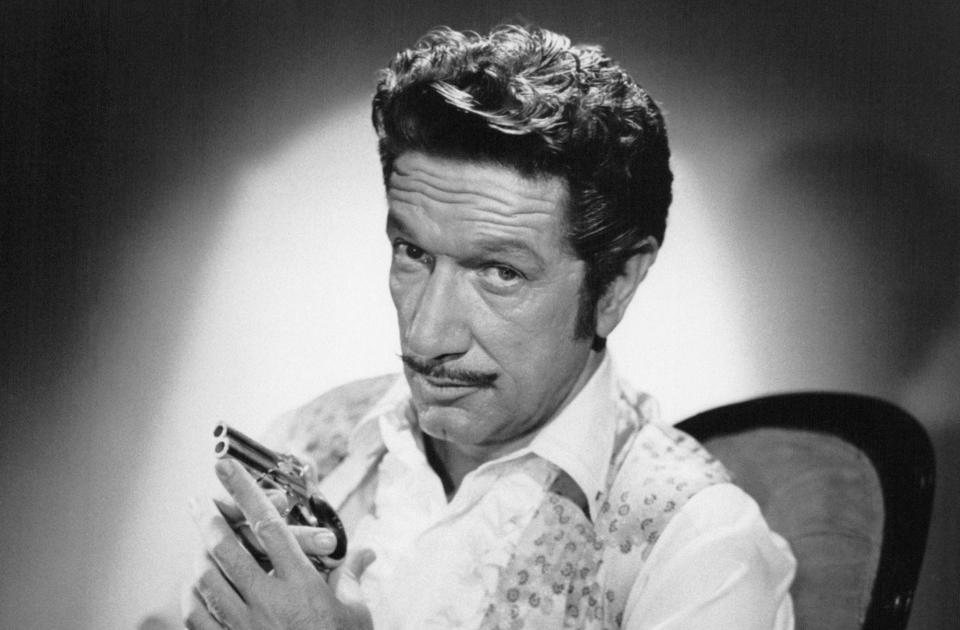
Silver Screen Collection/Getty Images
During the war, he also recognized his own talents as a writer, mostly because he had to more or less leave art behind. "You can't carry an easel on a torpedo plane, so I wrote," Richard Boone said in 1970. "Short stories imitating Hemingway and Dos Passos, but I realized my dialogue was poor. So when the war ended, I joined the Neighborhood Playhouse in New York, on the GI Bill, to learn to write. I thought I'd get in with actors and see how dialogue was done, then I found I had a talent for acting and away I went."
RELATED: The Original Star Trek Cast: Where They've Boldly Gone, Then and Now
Picking up the scenario, Magers adds, "Not a handsome man by Hollywood standards, he nevertheless found work in some 150 live TV shows in New York from '48 to '50 based on his craftsmanship and abundant energy."
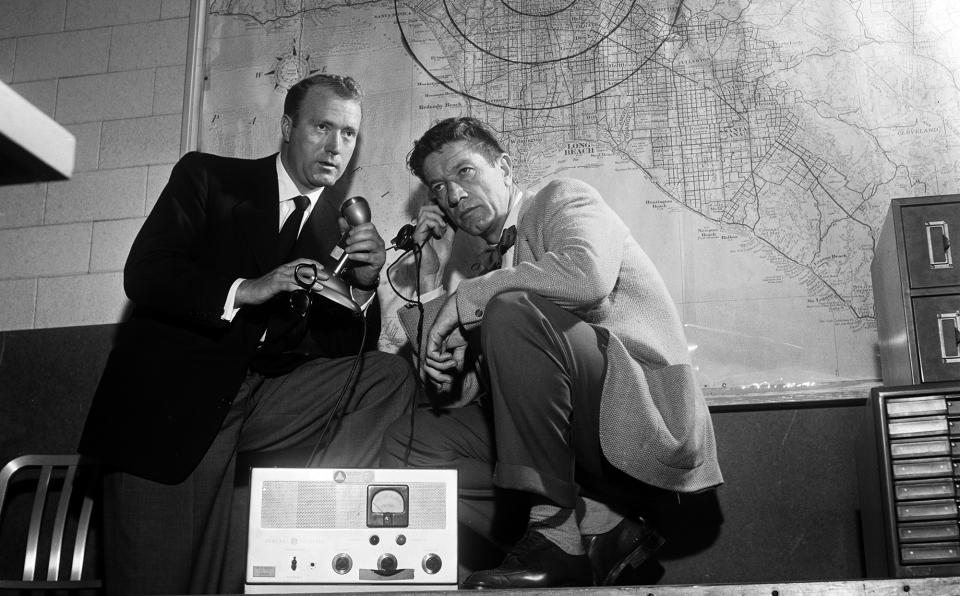
Graphic House/Archive Photos/Hulton Archive/Getty Images
He ended up studying acting and dance, and made it to Broadway in a 1948 production of Medea, appearing on stage with Sir John Gielgud and Dame Judith Anderson. He followed that up with a production of Macbeth in 1949, which, as noted, led him live television, where he truly honed his craft.
RELATED: "Lonesome Dove' Cast: See What the Stars of the '80s Western Miniseries Are Doing Today
"In the years, from 1947 to 1950," he shared to the Times-Advocate, "actors, directors and cameramen were all learning together, pioneering the new medium. The acting was extraordinary, because of its immediacy. The cameras were choreographed with split-second timing, because there were no retakes; we were going out on the air live. It was enormously exciting."
Hollywood beckons
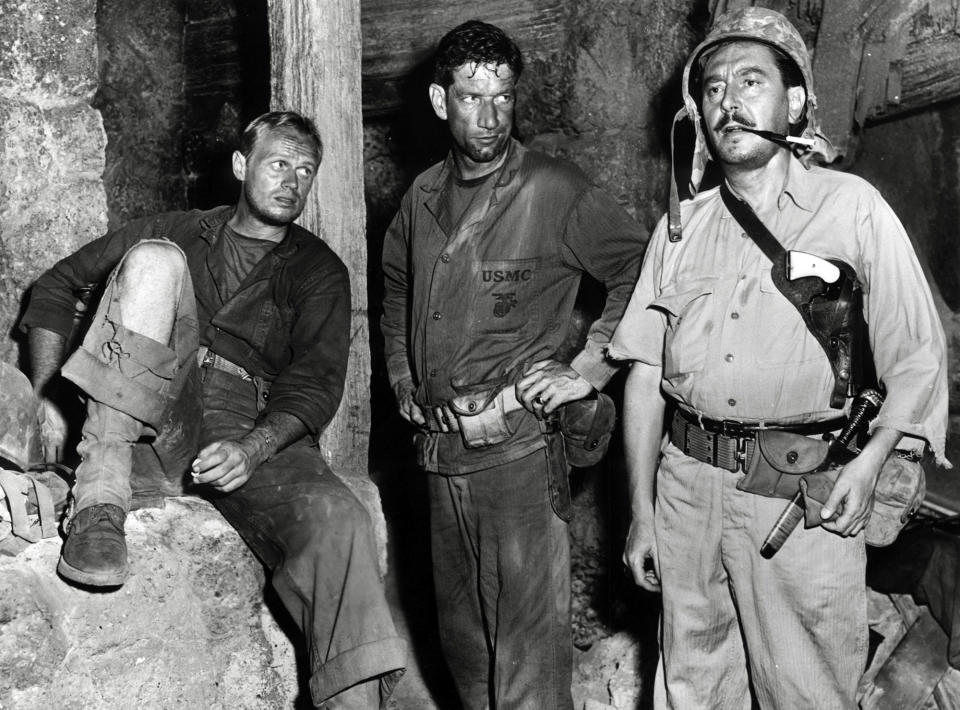
©20th-Century Fox/courtesy MovieStillsDB.com
Making the move to the big screen, Richard Boone made his movie debut in 1951's Halls of Montezuma, portraying Lieutenant Colonel Gilfillan. Said The Los Angeles Times of the film, "It contains some spectacular battle scenes and some excellent performances. Richard Widmark, in a sympathetic role, is especially good. And so is Richard Boone, 20th Century-Fox's new discovery. A Los Angeles boy, he's a veteran of Broadway and 150 television shows. Elia Kazan used Boone to support a girl in a film test. When Darryl Zanuck saw the test, he put Boone under contract."
Between 1951 and 1954 he appeared in 15 more movies, among them Call me Mister, Man on a Tightrope, The Robe, Siege at Red River and the movie version of TV's Dragnet. The latter led that film's writer, James E. Moser, to invite him to star in his new series Medic, which aired between 1954 and 1956 for a total of 59 episodes. It's credited as being the first medical drama to emphasize realism and actual medical procedures.
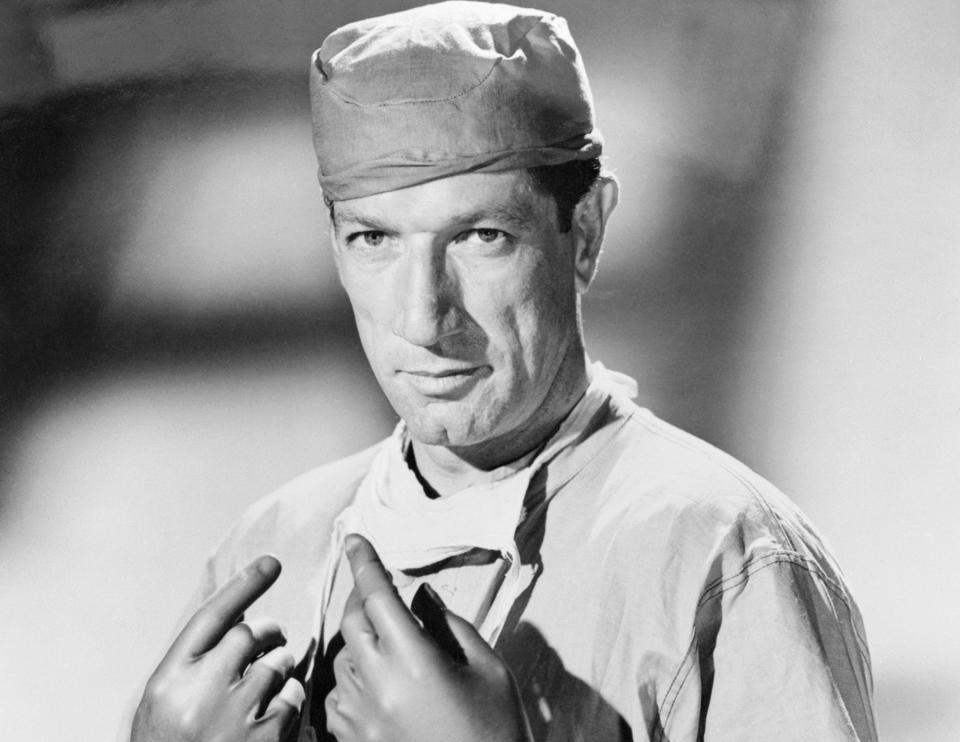
Getty Images
"For three years, I didn't play anything but dirty men at 20th Century-Fox," he shared with the Petaluma Argus-Courier in 1956. "Why? I seldom got to shave. Now, look at me. Medic did this for me. I'm getting my pick of pictures."
And he did, starring in 11 of them between 1955 and 1958. But what's surprising is the fact that despite the success he was enjoying in film, he signed on to star in another series.
Have Gun Will Travel

©Paramount Pictures/courtesy MovieStillsDB.com
Have Gun Will Travel ran from 1957 through 1963 for a total of 225 half-hour episodes. Says Magers of the series' premise, "Headquartered in the stylish Hotel Carlton in San Francisco, Paladin dressed in formal attire, ate gourmet food, quoted poetry and attended the opera, always escorting a beautiful lady. But, when 'working,' he dressed in black, used calling cards with a chess knight emblem, carried a derringer under his belt and wore a black gunbelt with the same chess knight symbol on the holster; the knight symbol being a reference to his character."
"It's a chess piece, the most versatile on the board," Richard Boone explained. "It can move in eight different directions, over obstacles, and it's always unexpected."
RELATED: Jimmy Stewart Movies: 10 of the Legendary Actor's Most Impressive Star Turns
Explains writer/producer Christopher Knopf, a lifelong fan of the series, "Have Gun Will Travel was a morality play in which nothing was usually as it appears — a rare Western that depicted Native Americans sympathetically and not as outright villains — and Paladin often took the side of the underdog, even if it turned out they were not the ones paying his rather exorbitant fee."
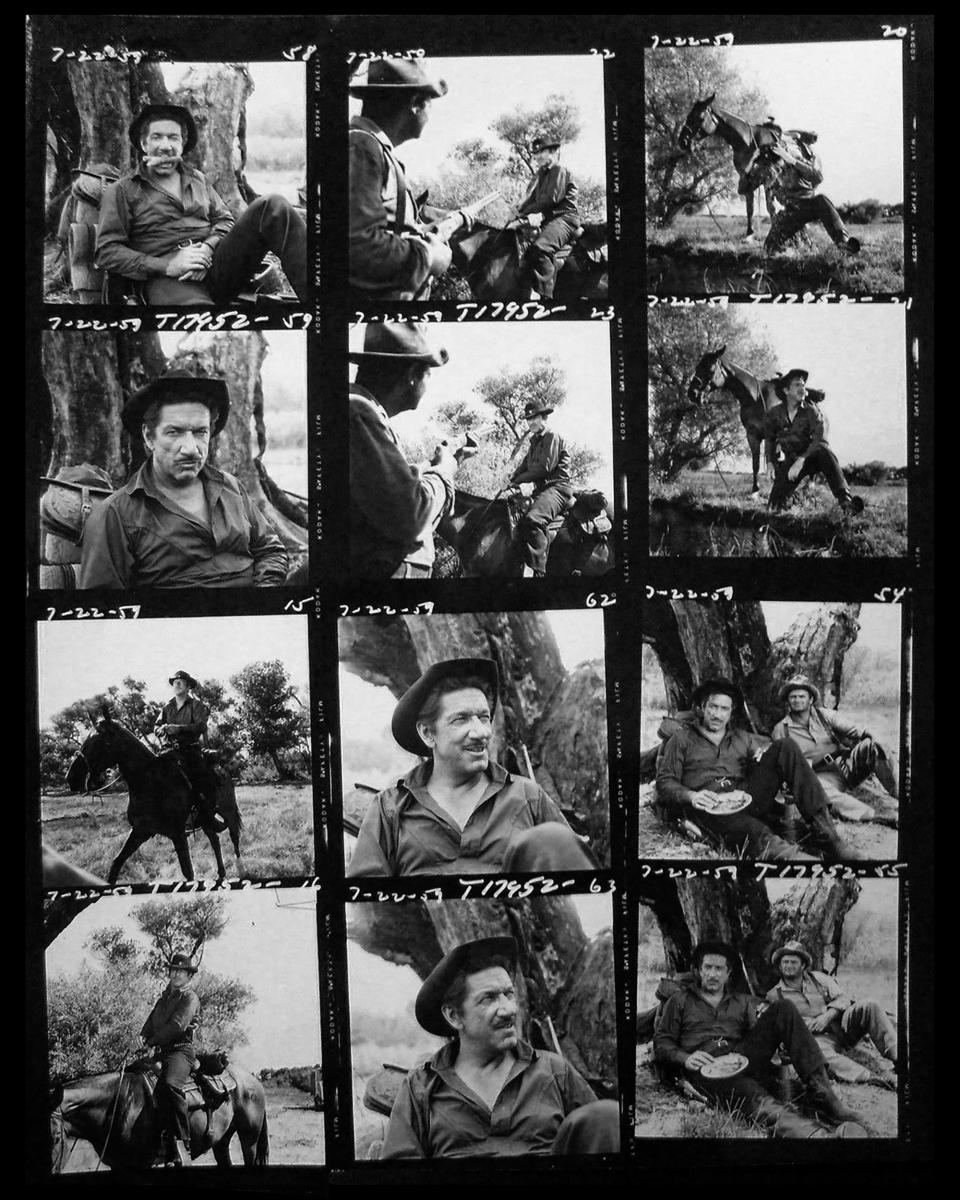
©Paramount Pictures/courtesy MovieStillsDB.com
The show was acclaimed for its more literary scripts than a lot of other shows. It was created by Sam Rolfe, who would go on to create The Man from U.N.C.L.E. as well; and had teleplays written by, among others, Star Trek creator Gene Roddenberry, who provided 24 scripts over the course of the series.
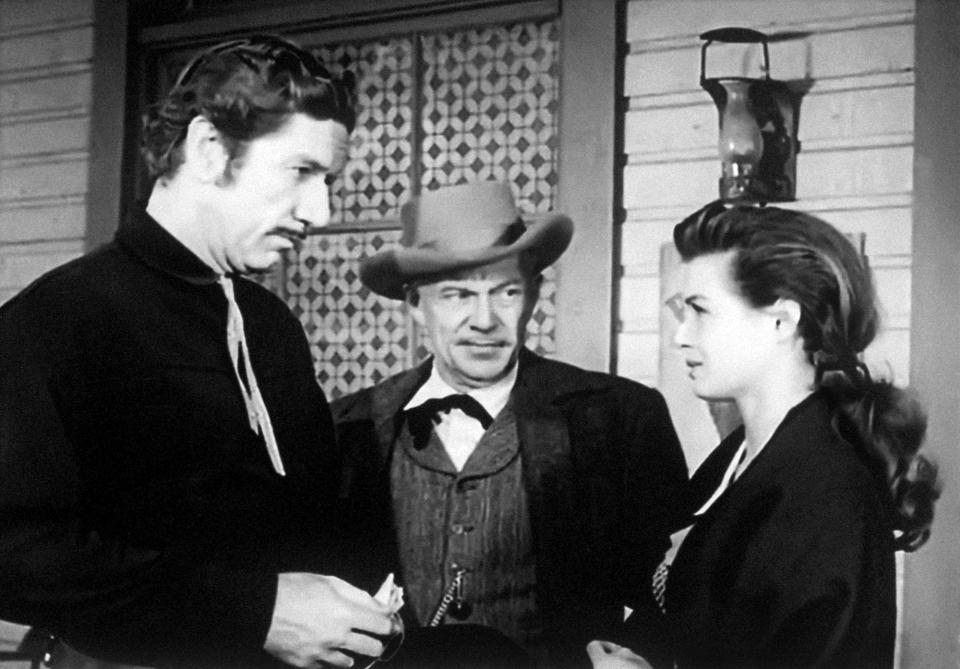
©Paramount Pictures/courtesy MovieStillsDB.com
An important component of the show insofar as Richard Boone was concerned was the fact that it actually allowed for character evolution; that, unlike most TV characters of the time, Paladin could be changed by what he experienced as opposed to have a re-set button pressed at the end of each episode. "Herb Meadows and Sam Rolfe wrote the original script," he told the New York Daily News in 1959, "but the character I play now is different, and I think changes have been, in some sense, my contribution. I've had something to do with adding a sense of humor, lessening his concern with money, changing and deepening his outlook on life and even incorporating tender scenes without lessening the concept of a courageous and adventurous man."
The Richard Boone Show
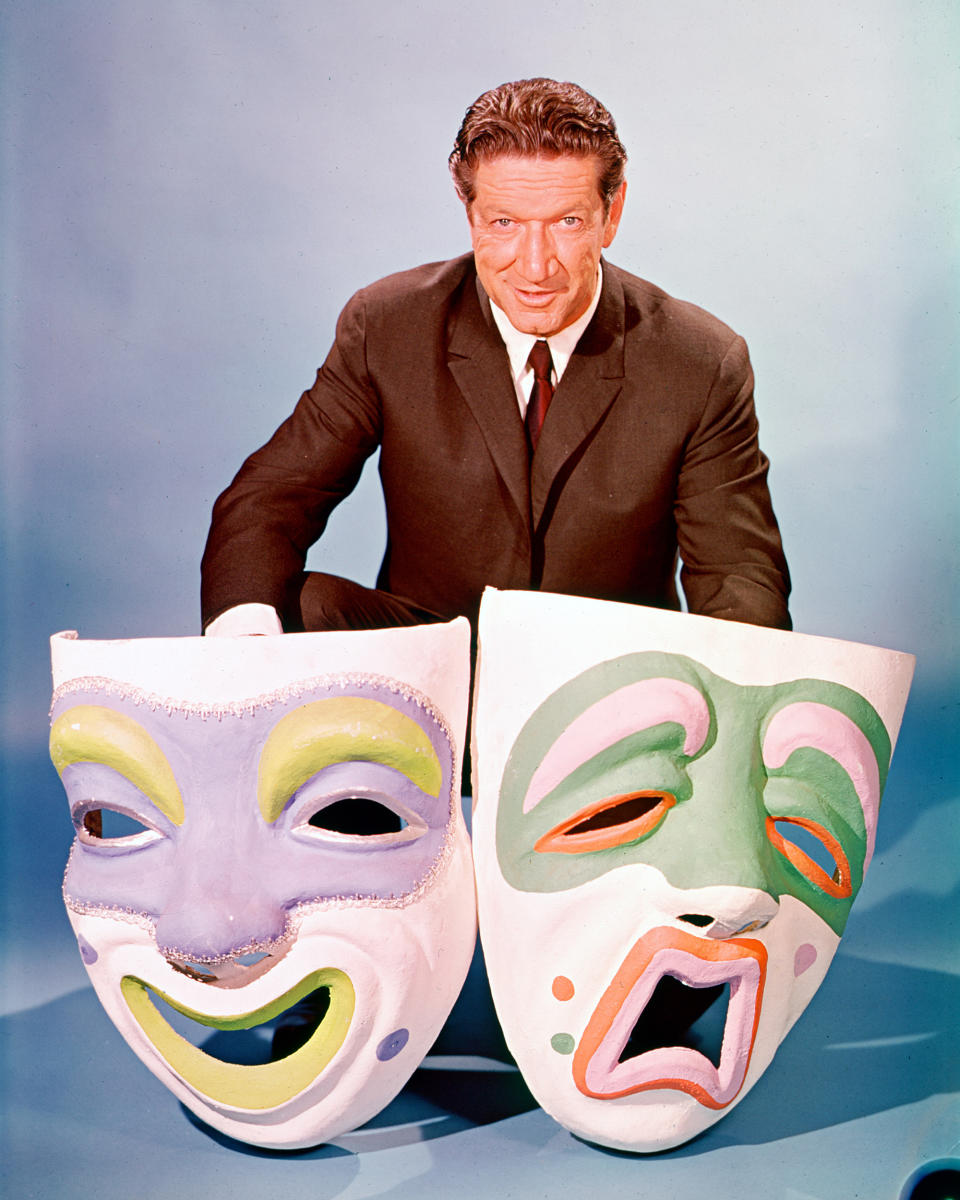
Silver Screen Collection/Getty Images
Following the conclusion to Have Gun Will Travel, the actor, who had spent much of his career focused on quality, signed a deal to host the anthology series The Richard Boone Show, which would air from 1963 to 1964 and a total of 25 standalone episodes. He hosted the series and starred in about half of the episodes alongside a troupe of 15 different performers.
"Some people think of it as a laboratory," he mused to The Brooklyn Daily Eagle in 1963, "but that's not accurate. It’s more a workshop. In a laboratory, you experiment with unknowns. Our company will be stockpiled with known quantities in every field of the dramatic arts. As in a workshop, our greatest problem will be the correct coupling of people in our different arenas to assure the best possible end result. There will be no pap-and-pablum productions coming out of this group, the way most television series dispense them. Usually, a TV show is put together in script form and everybody on the set, from director to actor, conforms to the script. That process is a strangulation of creativity. What we propose to do is work over the story in our workshop the same way actors work to perfect their characterizations in acting classes. The same will be done by our writers and directors. The finished production will be a television play in which ‘the play's the thing.’”
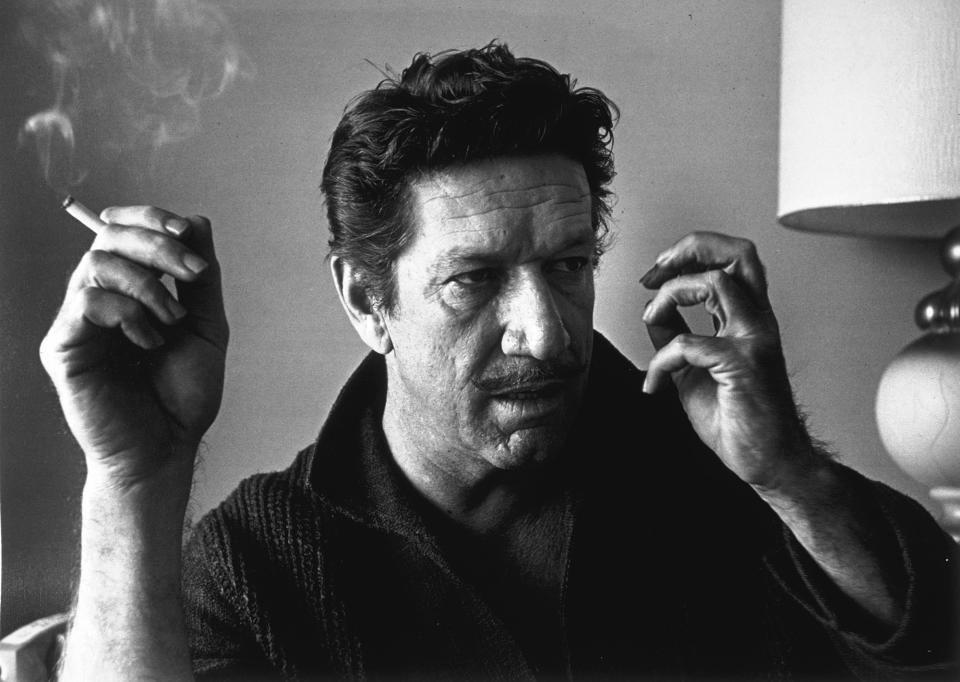
Ray Fisher/Getty Images
Unfortunately, the show was running opposite the CBS hit Petticoat Junction and never had a chance to gain much foothold in terms of ratings, so it was canceled following a single season. Adding insult to injury, he learned about the series' demise by reading the news in the trade papers rather than being told by anyone.
“I think the way they did it represents what they are,” he proclaimed. “They did it in the most chicken, gutless way possible. They leaked it to the trade papers. As long as the business remains in the hands of the graduates of the advertising business, creative people don’t have much of a chance. I’d hate to be the next man who comes up with a creative idea.”
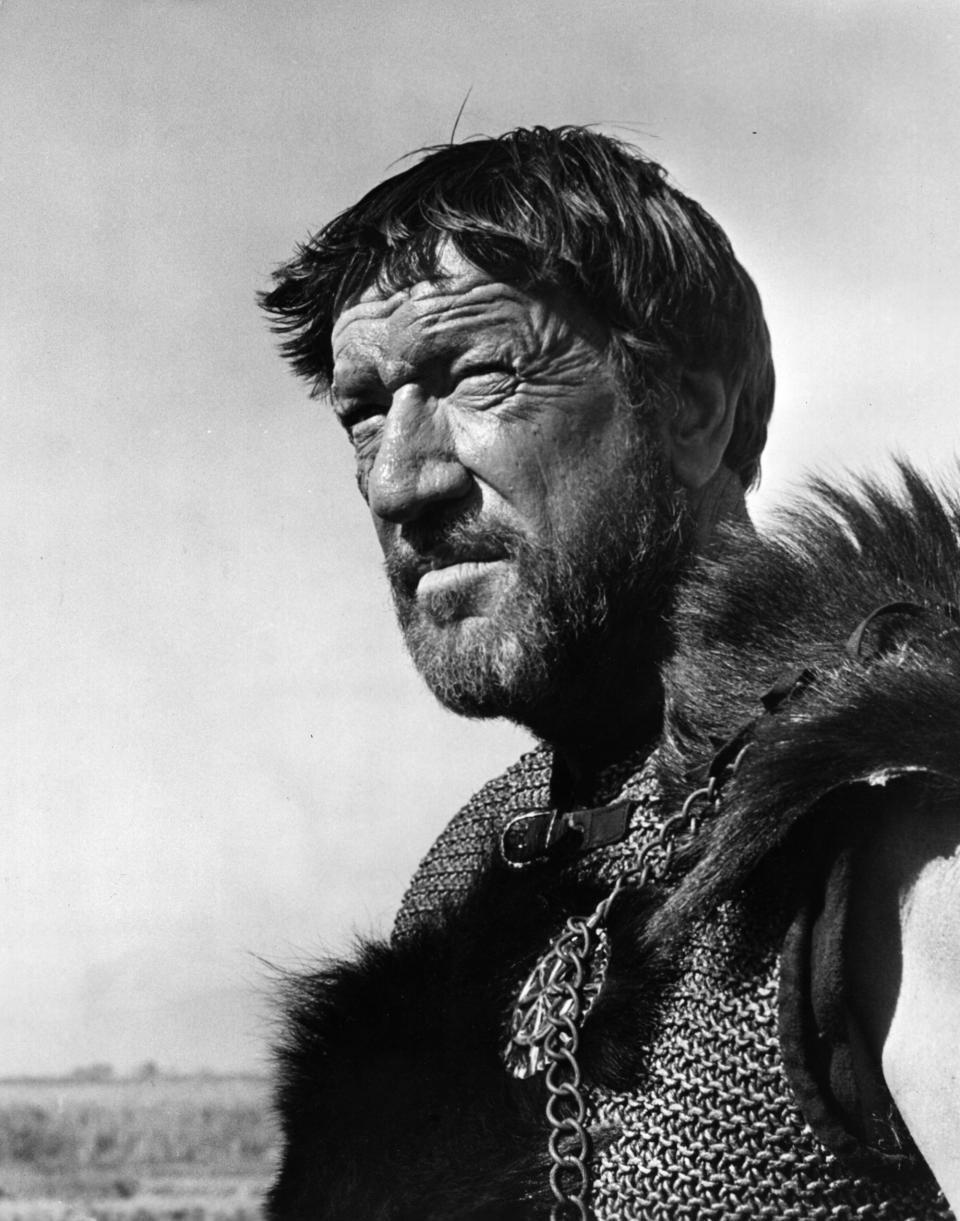
Alan Band/Keystone Features/Getty Images
Three years later, his sentiments hadn’t changed much, telling the Los Angeles Times, “It’s harder and harder to do your best work in TV. There seems to be no reversing the trend of commercial control over the creative side, which is becoming weaker and weaker.”
Moving forward
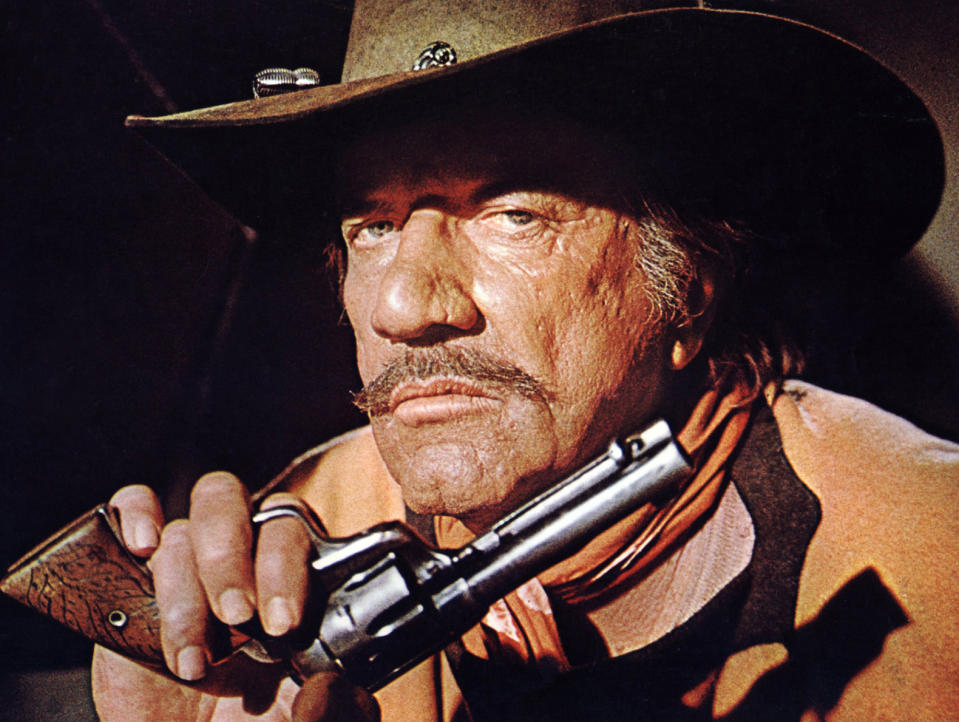
FilmPublicityArchive/United Archives via Getty Images
Tired of Hollywood, Richard Boone would move his family — third wife Claire McAloon and their child — to Hawaii, but he would still return to shoot film and television. There were movies like John Wayne Western's Big Jake (1971) and The Shootist (1976), voicing the dragon Smaug in an animated TV version of J.R.R. Tolkien's The Hobbit (1977) and, between 1972 and 1974, starring in a series of early 20th century Western TV movies under the name Hec Ramsey, part of NBC's weekly "Mystery Movie." These would include alternating adventures of McCloud, Columbo and MacMillan and Wife. Overall, though, he wasn't too happy with the storytelling, dismissing many of the scripts as being "silly."
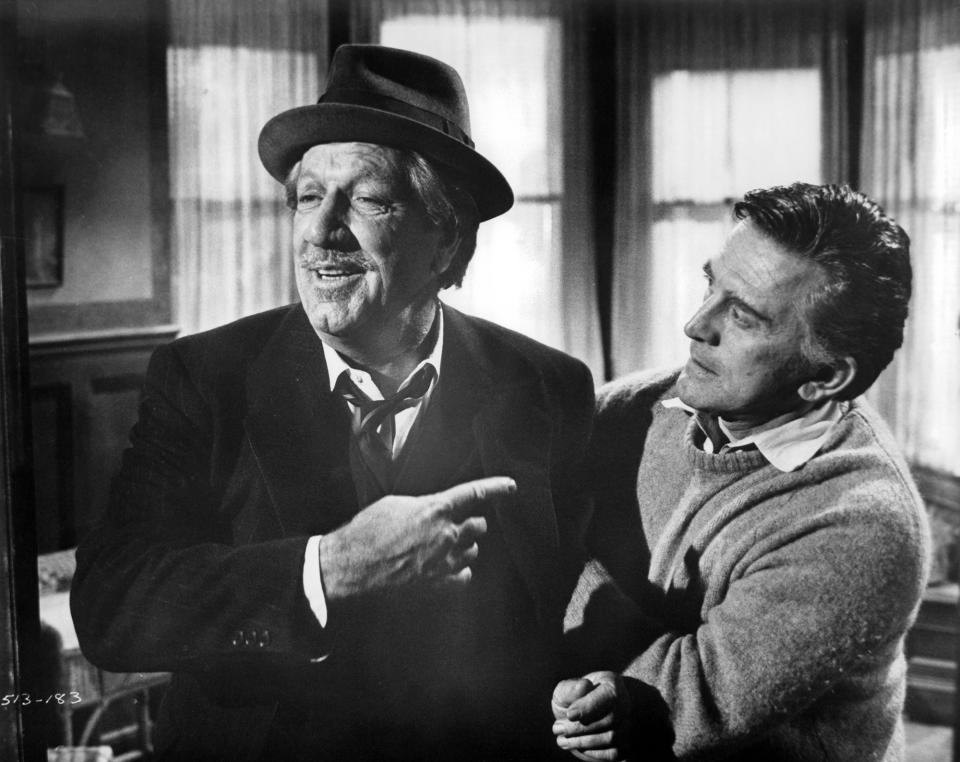
Warner Brothers/Getty Images
While he worked throughout the 1970s, Richard Boone also taught aspiring actors, attempting to impart some of what he had learned as a performer over the years. In a 1963 interview, he expressed his views on acting, noting that while most people view it as a profession, he saw it as a way of life.
"Talent," said Boone, who would die from complications of throat cancer in 1981 at age 63, "is not a golden rarity among humans. There is more talent walking the streets of the world than there are pretty girls and bald men. Unfortunately, most talent lives and dies unrecognized. People who become good actors really don't have any other choice. They have to do it."
Travel Back to the 1950s for more great entertainment stories

